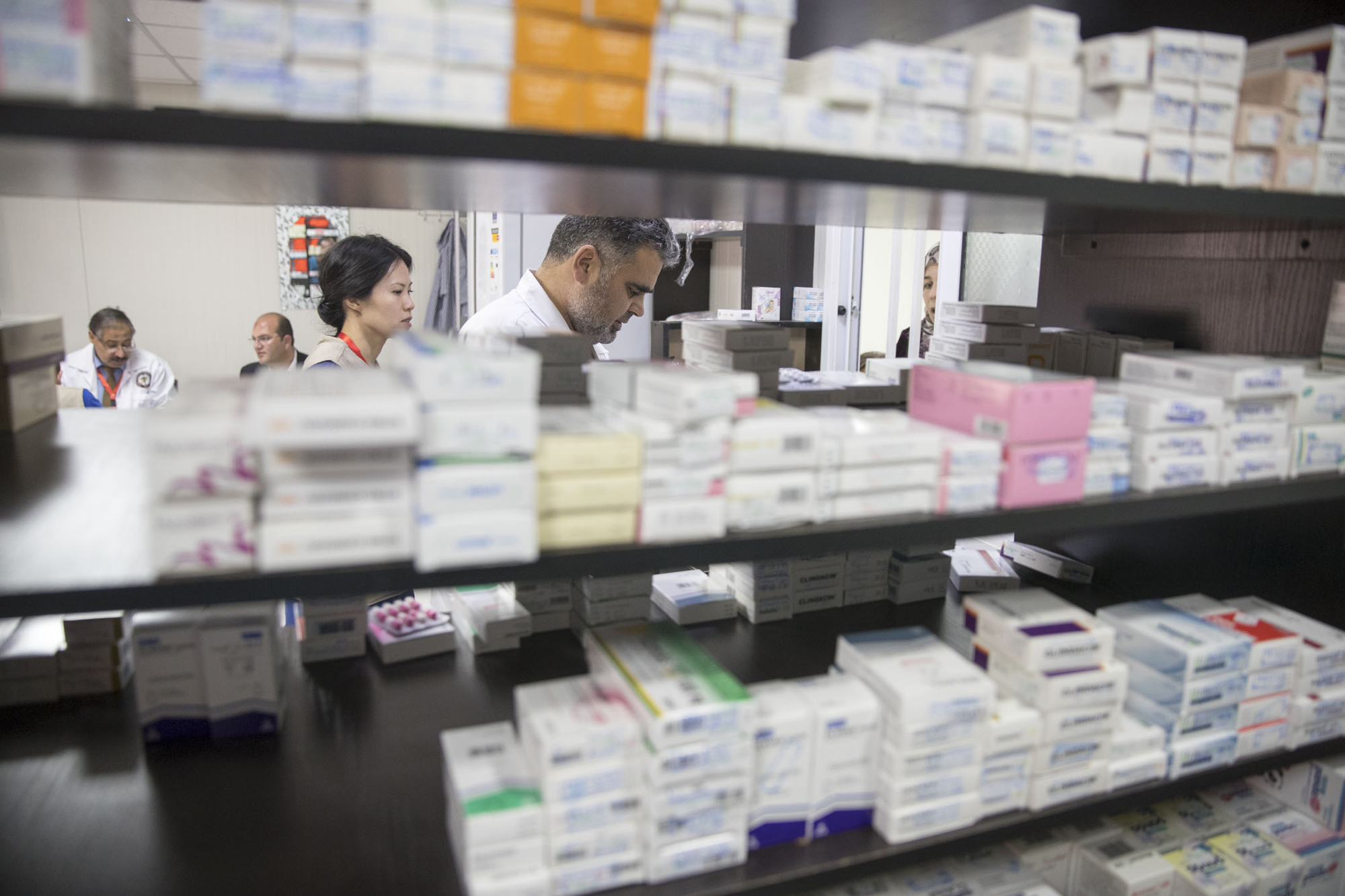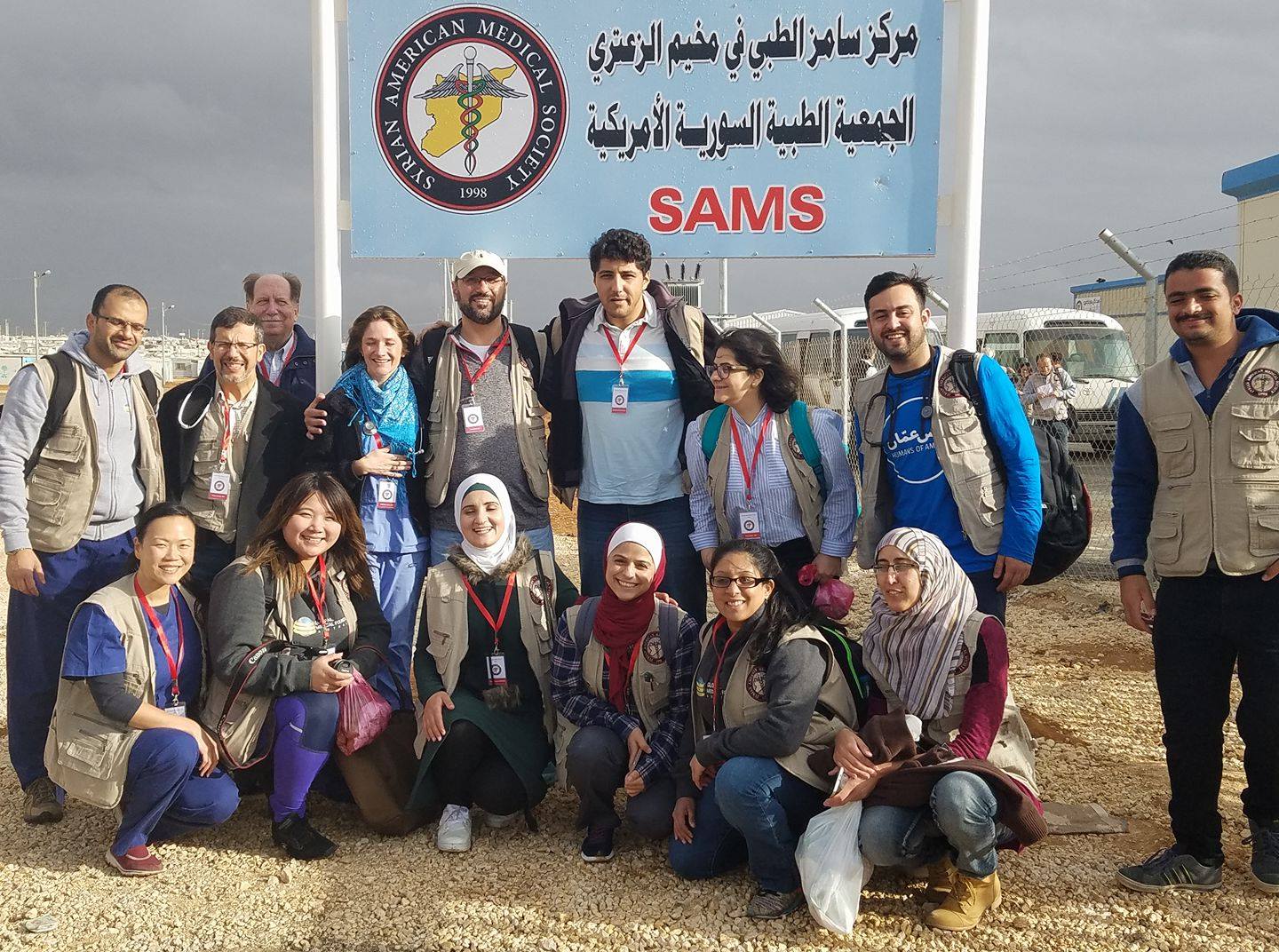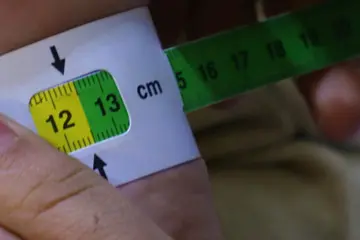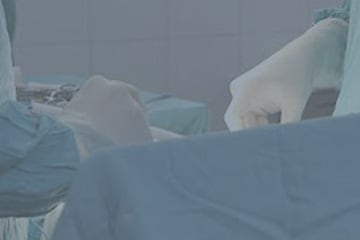December 1, 2017
I spent last week volunteering as an interpreter with the Syrian American Medical Society (SAMS) on their November mission to provide health care for Syrian refugees in Jordan. Seven years on, and the suffering of Syrian refugees still continues, yet I was constantly left in awe by their amazing resilience.
A few of my encounters with patients linger in my mind. It was my second day in Al-Zaatari Refugee Camp when a mother came in towards the end of the clinic time, asking to be registered to see a doctor.
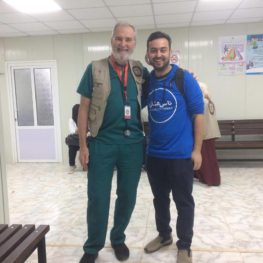 She had her 5 year-old-child with her, and wanted the doctor to see her. I was working with the amazing Dr. John Stively, who agreed to see child even though the clinic was about to close. In a matter of minutes, the mother finished the paperwork, and was joined by her two other daughters in the clinic.
She had her 5 year-old-child with her, and wanted the doctor to see her. I was working with the amazing Dr. John Stively, who agreed to see child even though the clinic was about to close. In a matter of minutes, the mother finished the paperwork, and was joined by her two other daughters in the clinic.
I was struck by the blank look on her younger child’s face. While I tried to play with her, she remained motionless in her chair. My stream of thought carried me away in those few seconds to imagining the horrors that this child must’ve gone through, to now have such a blank expression devoid of even a small hint of a smile.
The mother started explaining what the child’s symptoms were, and her ailment turned out to be a simple upper respiratory tract infection. Dr. Stively asked the mother: “Is there anyone else currently sick at home?”
After I translated to the mother, she replied in a weak tone, “Yes. I am. I have lymphoma.” Now, it was my turn to be motionless. I was surprised by how angry, upset, and weak I felt.
This mother and her family had already gone through so much in their lives — more than any of us can even imagine. Now, she also had to battle cancer. God knows how many bombs or snipers she survived, and how many people she saw dying in front of her, and how many loved ones she lost in this brutal conflict. I couldn’t help but feel frustrated at the fact that although at last she had reached safety with her children in Jordan, she had to face another battle, this time with cancer.
We gave her a medication for her daughter and counseled her on what she needed to do, and that she needed to stay away from antibiotics as they wouldn’t help her daughter’s viral infection. The mother was immensely grateful and kept thanking us for helping them, but I couldn’t help but feel frustrated at myself and at the world. If only I could have helped the mother just a bit more. If only.
Another story that lingers in my mind is that of woman who came into the clinic with a headache. Upon further investigation into her history, she appeared to be on three different psychiatric medications. She told us that she sees a psychiatrist who prescribed these medications to her, but that she stopped taking them recently since she is worried she will get addicted to them.
A wonderful Australian pharmacist who was with us on that day in the clinic asked me to reassure her that the medication she is on will not cause her any addiction, and that she must keep taking it. As I translated this to the patient, she directed a question to me that was the most difficult among the ones which I encountered during this week.
“Will the depression ever go away? Will it be cured by these drugs?”
I translated the question to the doctors knowing in advance that I would have to deliver to her the very difficult news that, while her depression could be managed, no one knew if she would ever be completely cured. Sometimes knowledge can be a weakness rather than a strength. The whole encounter was a reminder that services for mental health conditions are crucial among refugees and these services should not be neglected. Many people are suffering with mental health conditions on a daily basis, and in most cases silently so, after all the horrific events that they witnessed in the war. It is our job to help make sure they don’t stay trapped forever.
Another encounter with a patient is still engraved in my mind. A fifty year old woman came in with a very severe cough. Dr. Stively ordered a chest x-ray, and we saw what looked like either a chest infection or a malignancy. Having no access to other confirmatory tests, the doctor advised a course of antibiotics with a follow up chest x-ray. There was no other way of doing this. We explained the plan to the patient, and we told her that it was crucial that she came for her follow up.
She turned to me at the end of her appointment, and told me with a heartwarming smile: “Please turn to the doctor and tell him إنتو عراسي (an Arabic phrase literally translated into “you are on my head” and is said to show respect to someone).
She continued, “You come all the way from 1000s of kilometers just to help us and care for us. We tremendously appreciate that. Thank you”.
Now, almost a week after the end of the mission, I’m very thankful to SAMS and all the doctors, dentists, nurses, pharmacists, medical students, and all the other volunteers whom I worked with on this mission. The doctors provided care for thousands of refugees in a matter of one week, with services including Cardiac Catheterization and PCI, Open heart surgery, OB/GYN Surgery, as well as General Surgery. Specialties on the mission included Pediatrics, Podiatry, General Surgery, interventional cardiology, internal medicine, Urology, Endocrinology, Family Practice, Anesthesia, OB/GYN, Hematology, Dentistry, and Physiotherapy.
My encounter with this patient was a reminder of the important work that SAMS is doing. Sometimes, patients need to be reminded that we care; that they are not and will not be forgotten.


